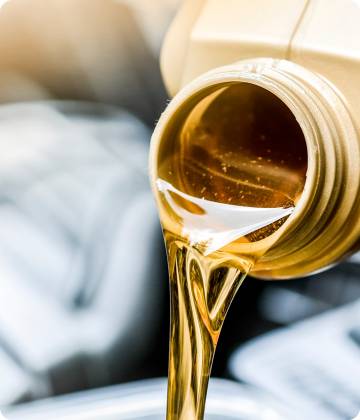
Trust PETRONAS Tutela to protect the transmission system
All that stands between the full power of a vehicle driving metal against metal is a thin layer of protective molecules. The PETRONAS Tutela range of specialist transmission fluids has been engineered to withstand pressure, enhance performance and efficiency and extend the life of moving parts – today and tomorrow.
Our range of functional fluids
View allNot sure whats the right fluid for your car?
Please use the simple tool below to identify the best fluid for your car.

Frequently asked questions
The primary role is lubrication, reducing the friction and wear on moving engine parts, for example between the cylinder walls and piston rings, or the camshaft lobes and followers. Oil also acts as a coolant, absorbing and transferring the heat produced in the engine combustion chambers and piston under-crown area, helping prevent overheating. Another role is to seal the space between the piston ring and cylinder wall to prevent combustion pressure (engine power) from escaping. It has detergent qualities too, preventing waste matter resulting from combustion and impurities from sticking to the engine interior, keeping it cleaner. Finally, as a rust inhibitor it neutralises acids produced by combustion gases, preventing rusting and corrosion.
Engines are constantly improving, with better performance and fuel efficiency – but this relies on the quality of your engine oil. Our lubricants have been engineered to respond to these demands, allowing your car’s engine to maintain its optimal performance for longer.
Is it important to change the oil and how often should I do this? You should change your oil and filter at or before the end of the oil-change intervals indicated by your vehicle manufacturer. These are based on distance travelled or time. Regularly changing your oil helps keep your engine oil in good condition and provides the best protection for all your engine components.
There are many engine oils on the market, each with a range of grades eg 5W-40, 10W-30 etc – these enable drivers to match the right oil with the needs of their car's engine, reflecting factors such as its age, whether it’s a high-performance engine and the driving environment – motorway vs stop and go traffic. Your car’s handbook will give you a minimum oil specification, however, our Lube Recommender tool provides a bespoke recommendation for ALL your car’s specific lubricant and fluids needs, from the engine and transmission to the differential, cooling system and brakes – ensuring your car keeps performing at its peak.
Both mineral- and synthetic-based oils are mostly derived from crude oil. Mineral oils are generally suited to older vehicle models and are usually less expensive than synthetic oils, which are modified to improve their protective and lubricant properties so they can perform in more advanced engines.
Other items you might be interested in

Car engine oils
Car engine oils
Our engine oils harness the latest technology to protect engines, boost performance and deliver a trouble-free drive.

Brake fluids
Brake fluids
Choose the right brake fluids and coolants will keep you moving and protect your engine.

Formula 1
Formula 1
Formula 1 is the ultimate testing ground, with no room for compromise. That’s why the Mercedes PETRONAS AMG Team only choose the best drivers and, of course, the best oil.







